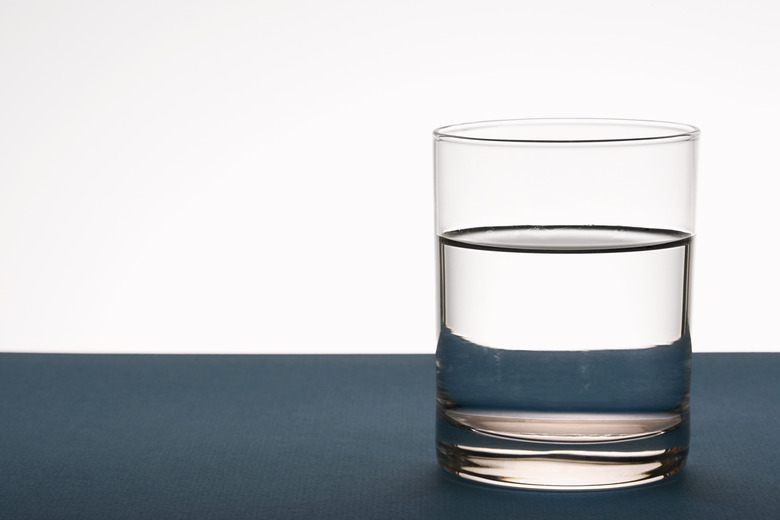How To Remove Sugar From Water
When sugar is mixed with water it creates a homogeneous solution, meaning you can't see the individual particles, unlike when you mix sand with water. The sugar water is a solution because no chemical reaction occurs, but to separate it you need to create a chemical reaction by distilling the liquid. During the distillation process, the water becomes a vapor. According to NEWTON's BBS: Ask a Scientist, an electronic community of math, science and computer science educators, "the solid sugar eventually starts to come out ... when enough water has boiled away that it cannot hold any more sugar."
Step 1
Mix 1 tsp. of sugar and 1 cup of water in a pan. This process works with all amounts of sugar water.
Step 2
Place the pan on a burner over medium heat. You can burn the sugar if you heat the solution too fast.
Step 3
Boil the mixture. This will cause the water to evaporate and sugar crystals to form on the sides of the pot.
Step 4
Turn the heat off and scrape the crystals from the pan. If you are doing an experiment, you might want to compare the amount crystals to the amount of sugar used initially.
Things Needed
- Pan
- 1 tsp. sugar
- 1 cup water
- Spoon
Warning
Avoid the steam to prevent burns.
Cite This Article
MLA
Cooper, Stacy D.. "How To Remove Sugar From Water" sciencing.com, https://www.sciencing.com/remove-sugar-water-5845166/. 24 April 2017.
APA
Cooper, Stacy D.. (2017, April 24). How To Remove Sugar From Water. sciencing.com. Retrieved from https://www.sciencing.com/remove-sugar-water-5845166/
Chicago
Cooper, Stacy D.. How To Remove Sugar From Water last modified March 24, 2022. https://www.sciencing.com/remove-sugar-water-5845166/
